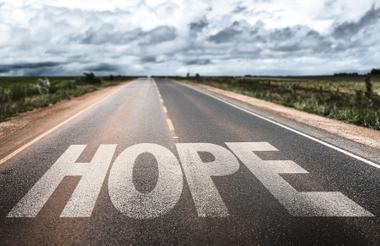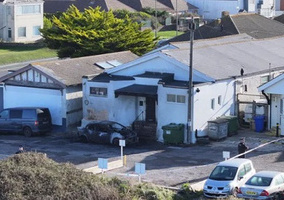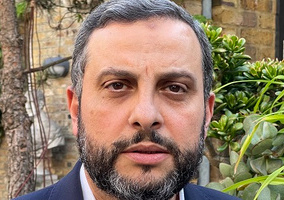Another week, another message from a colleague: “A mosque in Peacehaven, Sussex, has been firebombed.” It is the 13th such message I have received in just four weeks.
The relentless targeting of Muslims has begun to feel like a new normal in a Britain where Muslims no longer feel welcome. The political climate in which we now live is one where the security and safety of Muslims have become daily concerns. Will I be harassed on my way to work? Discriminated against when applying for a job? Attacked while going to pray?
These are not abstract fears but lived realities for many British Muslims today. And yet, despite our long history of service to this country, despite Britain being my home after fleeing war, the birthplace of my children and theirs, and the country that honoured me by appointing me as an Officer of the Order of the British Empire, our loyalty is once again being questioned. But here’s the truth: British Muslims are not outsiders or threats. They are among the nation’s greatest sources of hope, compassion, and service.
Filling gaps
As the cost-of-living crisis deepens, pressures on housing, education, healthcare, and other public services are mounting. Years of austerity, the fallout of Brexit, and the impact of the Covid-19 pandemic have left many families struggling to make ends meet. Recent policy decisions, such as retaining the two-child benefit cap and cutting winter fuel payments, have only compounded socio-economic hardship among communities across the country.
Yet amid these challenges, Muslim-led charities and community organisations are stepping up, not only to meet urgent needs but to drive sustainable, long-term change across all areas of social, economic, and cultural life in Britain.
This spirit is captured in the latest edition of the Forum, Muslim Charity Forum’s annual magazine, which celebrates the altruism, resilience, and civic leadership at the heart of the Muslim charity sector. It showcases stories of generosity, service, and lasting impact, from food banks in Leicester and youth programmes in Hull, to mental wellbeing projects in Birmingham and women’s empowerment projects in London. These efforts are transforming lives every day.
The work of Muslim-led organisations benefits everyone. Their reach extends beyond Muslim communities, serving men and women, young and old, people of all faiths and none. Their service is grounded in a shared belief in equality, dignity, and the right of every individual to be valued and supported.
Increasingly, the third sector has become Britain’s “fourth emergency service”, with Muslim-led organisations at the forefront bridging critical gaps where statutory provisions fall short. These gaps are not only rooted in a lack of funding and capacity but may also arise from a lack of cultural or faith-sensitive understanding.
Muslim-led organisations are instrumental in filling these gaps with empathy and expertise, providing services that offer practical help whilst truly meeting community needs. They play an especially important role in supporting vulnerable groups such as refugees, victims of domestic abuse, and people with special educational needs who are too often left behind by mainstream services.
Climate of hostility
At a time when divisive politics seeks to fragment our communities, the work of Muslim-led charities offers a powerful counter-narrative. While far-right rhetoric continues to portray Muslims as outsiders, British Muslims are demonstrating through their extraordinary civic contributions that they are integral to the fabric of society.
In recent weeks, a troubling rise in anti-Muslim incidents, including attacks on mosques, has reminded us of the persistence of Islamophobia. But it is precisely in this climate of hostility that the leadership of Muslim-led organisations becomes most important.
Beyond meeting urgent needs, they are challenging divisive narratives through their daily actions and spreading hope in the face of fear. Organisations and Muslim faith leaders are championing unity through our shared diversity, fostering social cohesion, and building a stronger, more vibrant Britain.
Despite limited resources, many Muslim-led grassroots initiatives continue to thrive. Often driven by volunteers of all ages who give up evenings and weekends to serve others, they embody the best of our civic spirit. Many rely on community donations rather than long-term institutional funding, yet they make lasting differences. Therein lies the beauty of their work – they are, quite literally, organisations by the community, for the community – sustained by selflessness, kindness, and faith in the common good.
Need for support
This work underscores the vital importance of small charities and the need to support them. Local authorities, NHS trusts, and other public bodies must recognise their expertise and potential to complement formal services. They should not only acknowledge Muslim-led organisations but actively partner with them by helping fund their initiatives, promoting their work, and drawing on their insight and experience to develop services that genuinely address community needs.
Meaningful collaboration means integrating grassroots voices throughout the process of service design and delivery as equal partners in shaping more inclusive and effective outcomes.
It is equally vital that policymakers recognise and amplify the essential work of Muslim-led organisations. Visiting community projects, meeting volunteers and rights holders, and championing their achievements are crucial to building wider public understanding of their contributions, which can serve as a model for communities nationwide.
Elected representatives must also highlight the barriers these organisations face and work toward removing them, whether in accessing funding, institutional support, or tackling Islamophobia. By advocating on their behalf, they can help ensure that these initiatives continue to thrive.
Ultimately, the government must forge genuine partnerships with faith and community organisations as part of a broader effort to strengthen civil society. The Civil Society Covenant is a welcome step in this direction, but this must be followed by meaningful implementation through ongoing collaboration with partners across the third sector, including Muslim-led organisations.
Such partnerships will empower these organisations to continue their mission: serving the nation, transforming lives, and restoring hope where it is needed most.
Related articles













